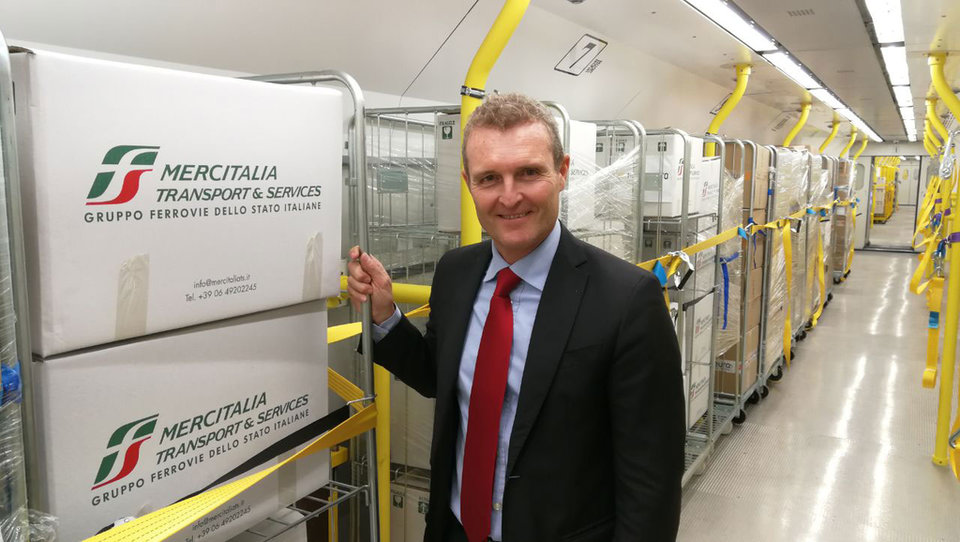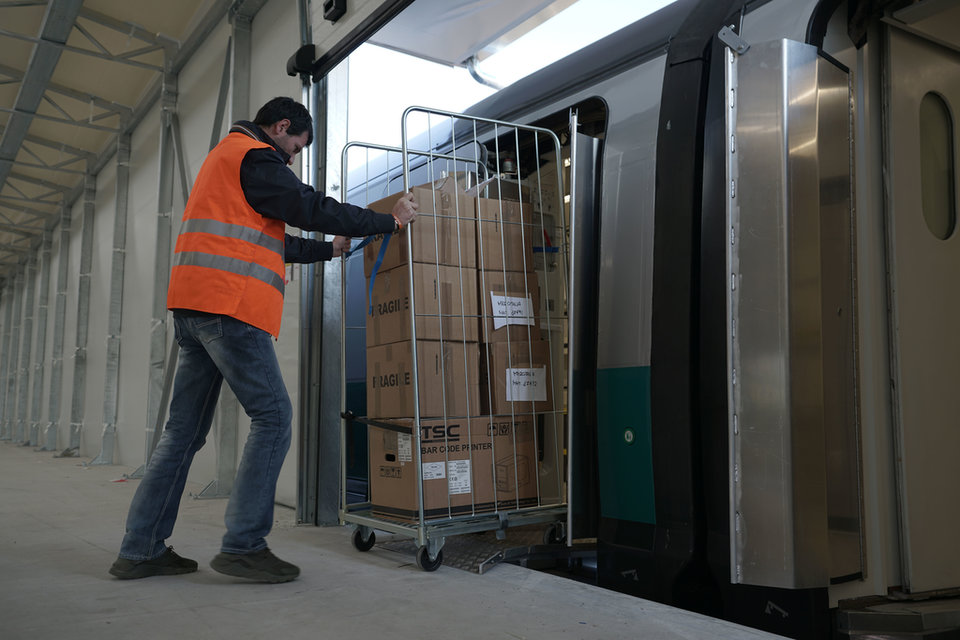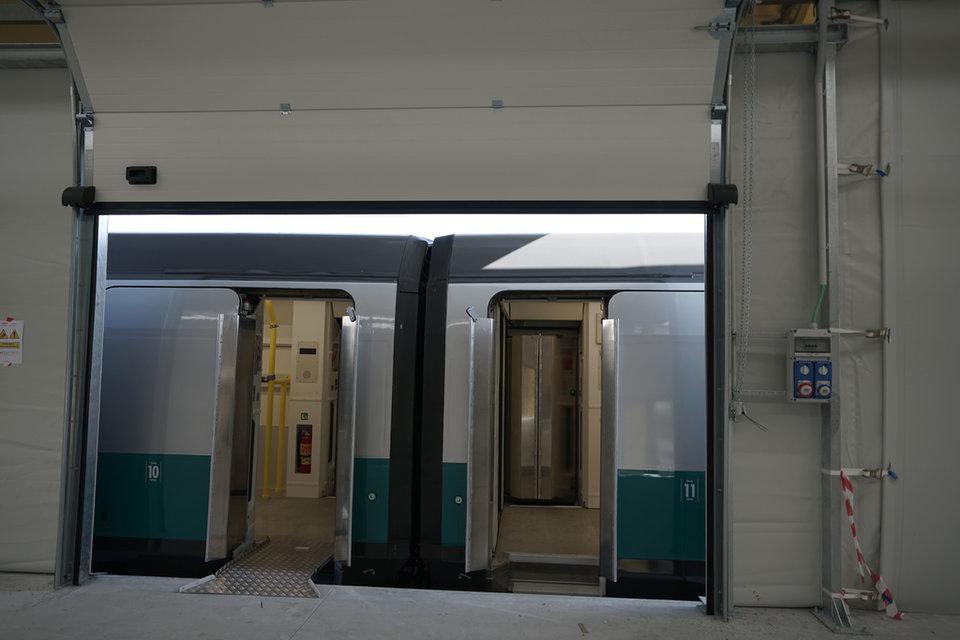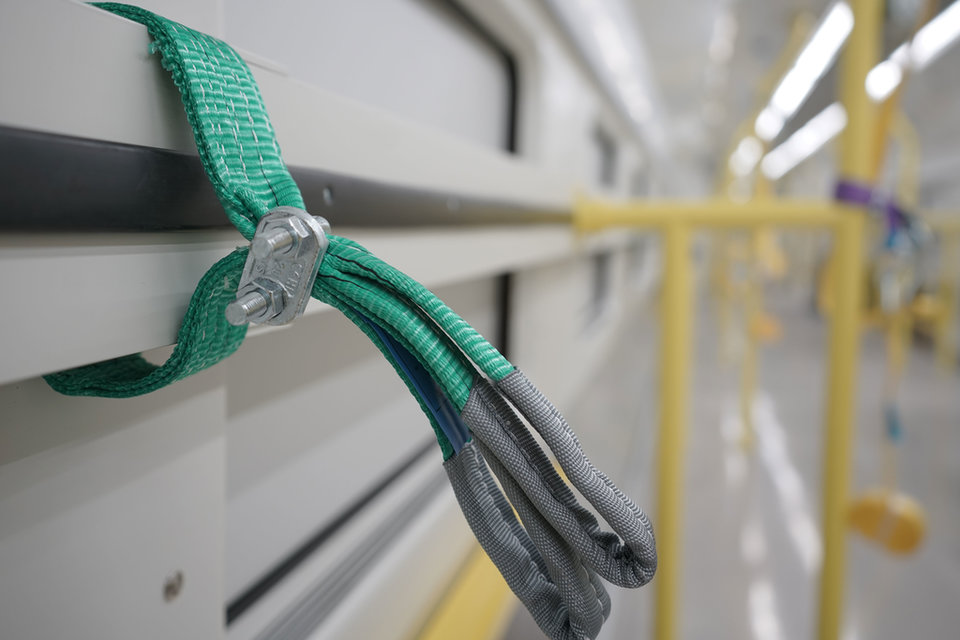Mercitalia Fast was launched with the aim to boost sustainable logistics operations
An auspicious start
Regardless to its future success, Mercitalia Fast was launched with the aim to boost sustainable logistics operations and is in line with the Italian Government’s strong focus on intermodality in transport.
Intermodal transport has the potential to reduce operational costs and loss of goods, though it can only work if supported by a quick and efficient network. Mercitalia Fast is bidding to provide just that, having become one of the few services in Italy whose delays are measured in minutes and not in hours.
“The fact that a railway service is going to be valued based on the minutes of its delay and not on hours changes the perspective altogether,” says Massimo Marciani, president of the Freight Leaders Council (FLC), an Italian think tank and loud promoter of intermodality and sustainable cargo transport systems.
Echoing his words, Mercitalia Logistics managing director and general manager Marco Gosso says the project will open the door to many other high-speed rail services across Europe. “We are at the forefront of a revolutionary service which projects the Italian rail freight industry into the third millennium,” he says. “It is just a first step that aims to make high-speed cargo transport an avant-garde model within the continent.”

Its ability to run at 180km/h along Italy’s High Speed/High Capacity network has made Mercitalia Fast the ideal transportation method for time-sensitive deliveries. As Gosso puts it, “the sector of time-sensitive cargo is the one we think has the biggest chances of growth, but it’s also one that railway companies are always excluded from.
“We wanted to become part of this sector and have planned to focus on two factors: our ability to transport freight via train, and the use of one of the most important assets in Italy, the High Speed/High Capacity route.”
And this will not only be convenient for Mercitalia, but according FLC’s Marciani, it will help create more competition in the country: “In Italy, 65% of the international freight trains are operated by companies that are not Trenitalia, and this is signal of vitality. Traffic has always increased in Italy as a consequence of enhanced competition among intermodal operators,” and this service could increase it even further, he says.
The last-mile problem

Mercitalia Fast was launched in compliance with the standards set by the EU in 2011 and to help move cargo off the road. Its environmental impact was largely welcomed during its launch earlier in 2018, with officials saying it will reduce traffic by taking 9,000 trucks off the motorway every year and cut CO2 emissions by 80% compared to road transport.
However, despite acknowledging its potential, Marciani says Mercitalia Fast could struggle to make a real difference. This is due to the fact that trains will run terminal-to-terminal instead of reaching different strategic points across the country.
“We need [all logistics] services to move via rail so that they can get as close to urban centres as possible, because if we keep relying on last-mile transhipments, this will result in an increase in costs that will never be comparable to transport via road. At this point, it would be a loss for trains by definition,” he says.
As a consequence, increased awareness among consumers on the positive impacts rail freight could incentivise producers to use trains instead of cars.
Marciani says if trains eventually start reaching metropolitan areas, “rail freight will really be able to remove a good part of cargo transport from the motorway, which is currently used to move goods between major cities like Rome and Milan, following rail routes that nobody uses overnight.”
Marciani also believes Mercitalia Fast will be fully effective once its rolling stock is updated to transport pallets (not just rolls, like it does now) and perishable goods. Failure to open the service to a wider range of products and to extend it to urban areas would make it far less convenient than road transport.

We need all logistics services to move via rail so that they can get as close to urban centres as possible
The new Mercitalia Fast is part of this important renovation of FS Italiane’s new rail freight service
Future investments
Building a wider network of destinations could be Mercitalia Fast’s next move. As Marciani puts it: “Only this way will they prevent perishable goods from going through further intermediate reloading, which is expensive and impracticable, especially if they are destined for places that are far away from the intermodal terminal.”
Fortunately, Gosso’s future plans for the service include just that: “If Mercitalia Fast receives positive answers from the market during the first phase of services, we will be able to plan an extension of our services to other terminals located in the main Italian cities that benefit from a high-speed network,” he says. These are thought to include key metropolitan areas such as Turin, Novara, Milan, Brescia, Verona, Padua, Rome and Bari.
And considering the substantial amount of money to invest at its disposal, this prospect seems on the right track to becoming a reality.
“Polo Mercitalia currently has revenues of about €1bn a year,” Gosso says. “We are planning to make further investments for a total of €1bn in the next five years, €500m of which has already been spent. The new Mercitalia Fast is part of this important growth in revenues and renovation of FS Italiane’s new rail freight service.”
